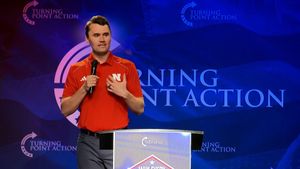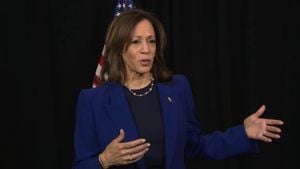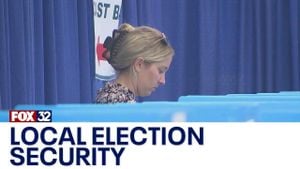The political saga surrounding Robert F. Kennedy Jr. and his recent request to the U.S. Supreme Court marks another chapter in the contentious and unpredictable 2024 presidential race. Kennedy, who initially entered the race as an independent candidate, has faced numerous legal hurdles concerning his ballot status across various states. Most recently, he filed to have his name removed from the Michigan ballot, as he has suspended his campaign and decided to endorse Donald Trump.
On Friday, Kennedy’s legal team submitted an emergency petition to the Supreme Court, urging them to compel Michigan Secretary of State Jocelyn Benson to take his name off the list for the upcoming November 5 election. This was not his first attempt; earlier this week, he also sought the removal of his name from the ballot in Wisconsin, reflecting his increasingly complex relationship with the electoral process.
Throughout his campaign, Kennedy has maintained the stance of stepping away from the race primarily in battleground states, aiming to support Trump. After suspending his campaign mid-August, he did not pull back entirely, choosing instead to remain on ballots where he felt it would not significantly alter the race.
The Michigan Supreme Court previously ruled against Kennedy's removal from the ballot, stating he was too late to comply as ballots had already begun being printed. The appeals to federal courts echoed similar sentiments, with the 6th U.S. Circuit Court of Appeals emphasizing the necessity of stable election administration. "Kennedy does not explain how to unring the bell at this juncture without great harm to voting rights and the public's interest..." said the court.
Now Kennedy’s lawyers argue the decision to keep him on the ballot infringes on his First Amendment rights, claiming it forces him to present himself as still being part of the election, which contradicts his intent to endorse another candidate. They assert, "...opens the floodgates for Secretaries of State across the United States to have unfettered authority to violate the law." This reflects his broader concerns about election integrity and the rights of candidates.
Interestingly, Kennedy's challenges are part of a wider political narrative as several legal cases emerge around state election laws and candidate eligibility. His case has brought to light the precarious balance each state tries to maintain during election cycles, particularly on how they manage modifications to ballot statuses as early voting gains momentum.
Meanwhile, the Supreme Court’s previous decisions have sent ripples through Kennedy’s campaign. Following the end of September, the court had rejected his earlier bid to be re-included on the ballot in New York, leaving him scrambling. It seems the more Kennedy tries to consolidate his strategy, the more entangled he becomes with legal and political quandaries.
Some of Kennedy’s supporters argue his legal battles and the narrative can strengthen his populist image by portraying him as standing up against bureaucratic systems. For those engaged with Kennedy’s platform, there’s both concern and intrigue surrounding how his endorsements will affect the political climate leading up to the 2024 election.
His pivot toward supporting Trump has been framed as strategic, amplifying speculation about his motives and the impact it will have on other Republican candidates. For example, many believe Kennedy's presence on ballots could siphon votes away from Trump – something Trump himself acknowledged with Kennedy’s recent endorsements influencing the upcoming election.
The Supreme Court's handling of various election-related cases—including recent rulings allowing states to dismiss voters from the rolls or deciding Colorado’s election laws—illustrates the volatile atmosphere leading up to the elections next month. Similarly, it highlights how much politicians must navigate not only public sentiment but the legal ramifications of their electoral strategies.
Speculation continues as to how these developments will impact voter sentiment. With Kennedy urging his supporters to rally behind Trump, the support dynamics within the Republican base are shifting, potentially complicatively so as election day nears. His actions have reflected the complex navigation between maintaining individual political integrity and leveraging alliances for broader electoral impact.
The upcoming elections promise high stakes and continued scrutiny as last-minute legal maneuvers reflect the uncertain terrain of American politics. How Kennedy's situation resolves—whether he succeeds in delisting himself from Michigan's ballot or finds workarounds to campaign strategies—could hold lessons not only for him but also for the political candidates who follow.
Overall, the intersection of Kennedy’s legal battles and his endorsement of Trump paints a complicated picture of the 2024 elections, one marked by alliances, legal intrigue, and the intense scrutiny of electoral integrity. The spotlight will remain on Michigan and Wisconsin, where every vote will matter as the nation gears up for what promises to be another fiercely contested election.



